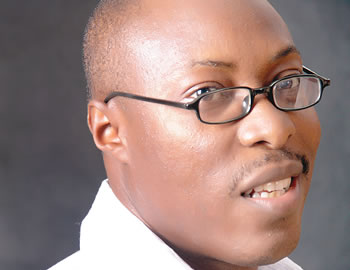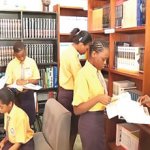Uche Peter Umez is a writer who specialises in children fiction. In this interview, he speaks on how he developed his writing skills during the dark era of former Head of State, General Sani Abacha, and how tough writing for children can be. EXCERPTS:
How did you become a writer?
That’s one good thing I have to say about Abacha’s dark regime. His era was fraught with lots of ASUU strikes and other anomalies, but during this period, I think in 1994, I stumbled upon Shakespeare’s sonnets and his complete works in an omnibus version in a late uncle’s library. And I was instantly drawn into poetry and literature. I can’t quite remember exactly when I started writing, but I am sure I became very keen on writing in 2001 when my first poem was published in a national newspaper.
So, when did you actually publish your first book and what challenges did you encounter?
My first book was published in 2004, a poetry collection titled: ‘Dark through the Delta.’ It was a self-publishing effort, sadly, as is almost the norm here in Nigeria. The challenges I faced then are still the same challenges many aspiring Nigerian writers at home face even today. You know, the publishing industry for creative writers is practically absent: no established publishers, insufficient professional editors, no literary agents; in fact, the entire structure that aids, facilitates, and promotes creative writing in Nigeria is not there – although we are beginning to experience a very few attempts by some indigenous publishers but still these are a mere scratch on the surface.
Who are your literary influences?
By literary influences, I suppose you mean literary greats. I don’t have any particular literary influence because I am a sucker for any good writing, whether fiction or non-fiction, poetry, whatever literary piece of writing I happen to lay my hands on. As one established writer once told me, read wide, read deep. I have been particularly inspired by some contemporary Nigerian writers.
You seem to have a flair for short stories and children’s fiction. What does it take to write for children?
I wish I had the flair you speak of. But writing remains a struggle for me in many ways. As you know, writing in any form or genre is tough, so children’s literature – for instance, writing for children within ages 8-12 – is no exception. I am of two minds when it comes to writing children’s fiction, anyway. Sometimes, I think it’s just fun to write; other times, it is a grind, maybe because you have to relive some childhood memories while writing, or maybe because you have to filter your diction so that it becomes much more accessible: a little less full of nuance. For me, what it takes to write for children is interest and delight. You have to be interested enough in their own world, regardless of how simple and bare it appears and to throw yourself into that fantastic world, and be barefacedly delighted by their own ideas and viewpoints in that world. In this world, imagination is much more essential than logic. I feel strongly that if you want to write for children, you must first read a good deal of children’s literature and be attentive, as well as observe children in action. Also, it would be helpful if you could draw on some of your childhood memories as you plot out your scenes and write your story.
Do you think Nigerian writers of children’s fiction are doing a good job?
I think they are doing a good job, considering the stack of odds against the Nigerian writer. The odds are quite immense, where do you start from? Now, I don’t know why we don’t have writers in the class of J.K Rowlings or Enid Blyton. How many writers are in the class of JK Rowlings anyway? What you should know is that every writer has his or her own distinctive thematic engagement and dream.
What impact has being a finalist in the 2007 NLNG Literature Prize had on your literary career?
Whenever I look back on that time, I always feel a sense of privilege. Yes, I was indeed privileged and honoured to be shortlisted alongside Mabel Segun and Professor Akachi Adimora Ezeigbo, two Nigerian literary greats. For such a privilege coming up especially early in my writing career, just six years after I had decided to take writing a little more seriously, I think that was a big break.
— Henry Onyema
WATCH TOP VIDEOS FROM NIGERIAN TRIBUNE TV
- Let’s Talk About SELF-AWARENESS
- Is Your Confidence Mistaken for Pride? Let’s talk about it
- Is Etiquette About Perfection…Or Just Not Being Rude?
- Top Psychologist Reveal 3 Signs You’re Struggling With Imposter Syndrome
- Do You Pick Up Work-Related Calls at Midnight or Never? Let’s Talk About Boundaries






